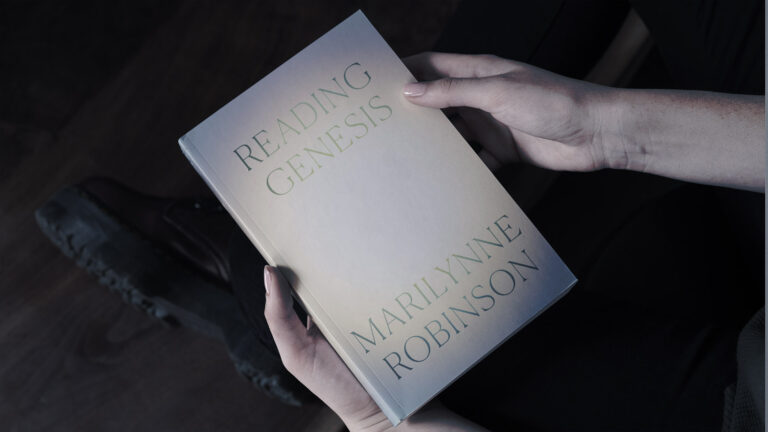All of her stories interact with themes of God, his works and man’s. Her essays, no matter the subject, dwell on theology. And in her new book, Marilynne Robinson the novelist and Robinson the theologian, though never separate, come together unsubtly.
In Reading Genesis, Robinson engages the Bible’s literal and literarily foundational text. She writes of it: “In it certain things are established—the nature of Creation and the spirit in which it was made; the nature of humankind; how and in what spirit the Creator God enters into relation with His human creatures.” The discovery and interplay of these “certain things” make up her book.
She discusses much, and themes and episodes from Genesis recur just like they do in Robinson’s novels. The central themes that occupy her are God’s benevolence and his providence. She gives due and necessary attention to the dynamics between God’s Big Plan and the mundane stuff of human action.
But what is Reading Genesis? You can’t really call it a commentary, and it’s not the kind of devotional or Bible study book that used to dominate Christian books stores. But while the form takes an unusual shape for a hermeneutical or exegetical book, it does read like a work from the Robinson canon. It’s a book-length essay (240 pages), written in the image and likeness of Gilead, without chapter divisions or much of a visible trellis. One reviewer of Robinson points out that reading her novels teaches the reader, over time, how to read her novels. That’s true of Reading Genesis.
And she teaches us how to read the book of Genesis. Different readers will no doubt react differently to this book. Some will want Robinson to address questions she does not. Some will want a more systematic exegesis. But the book is better for what it is not. We aren’t short on commentaries, after all. But we are in want of mentors who have lived long, reading and loving books of the Bible, and who are generous enough to write about it.
